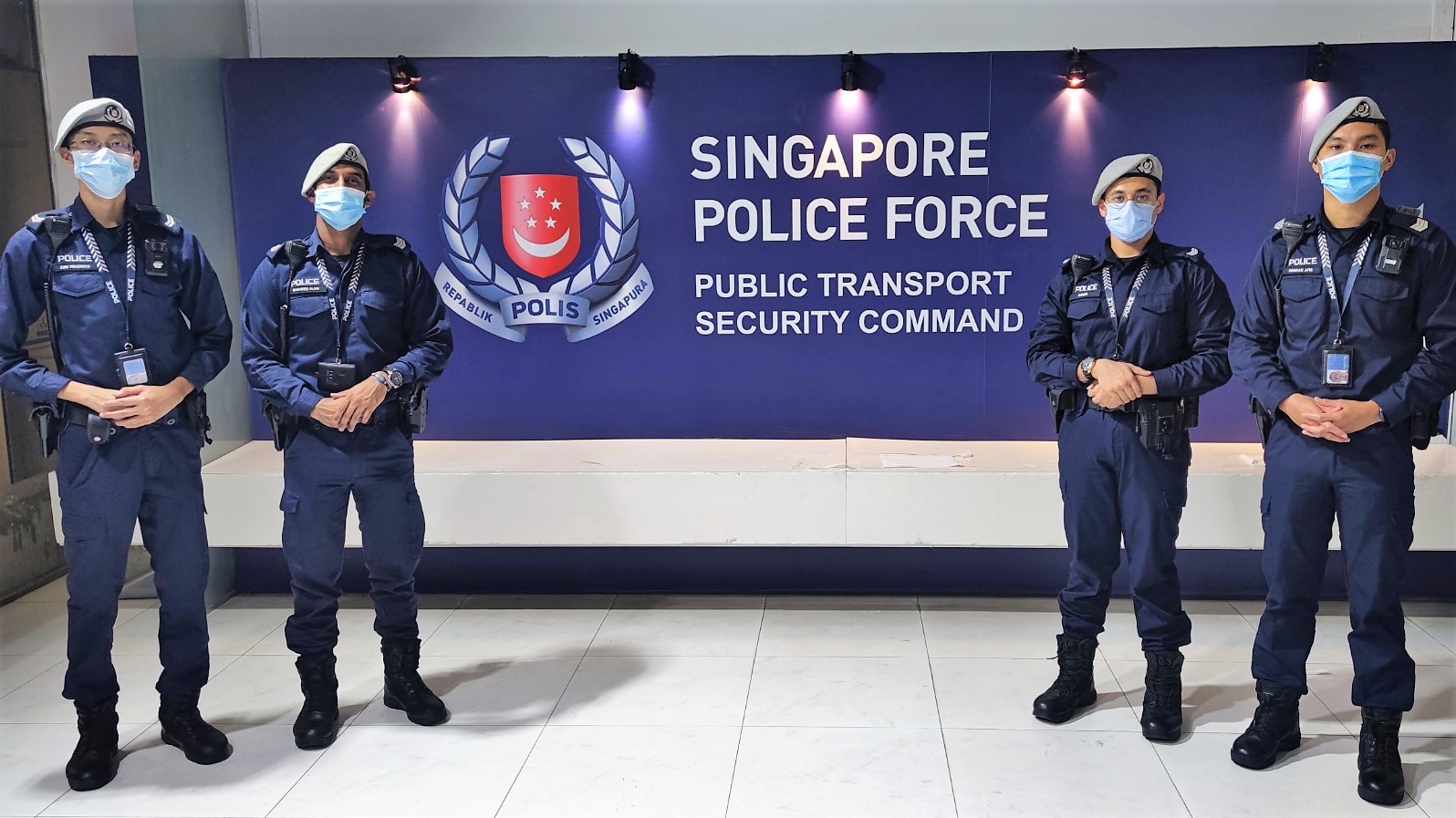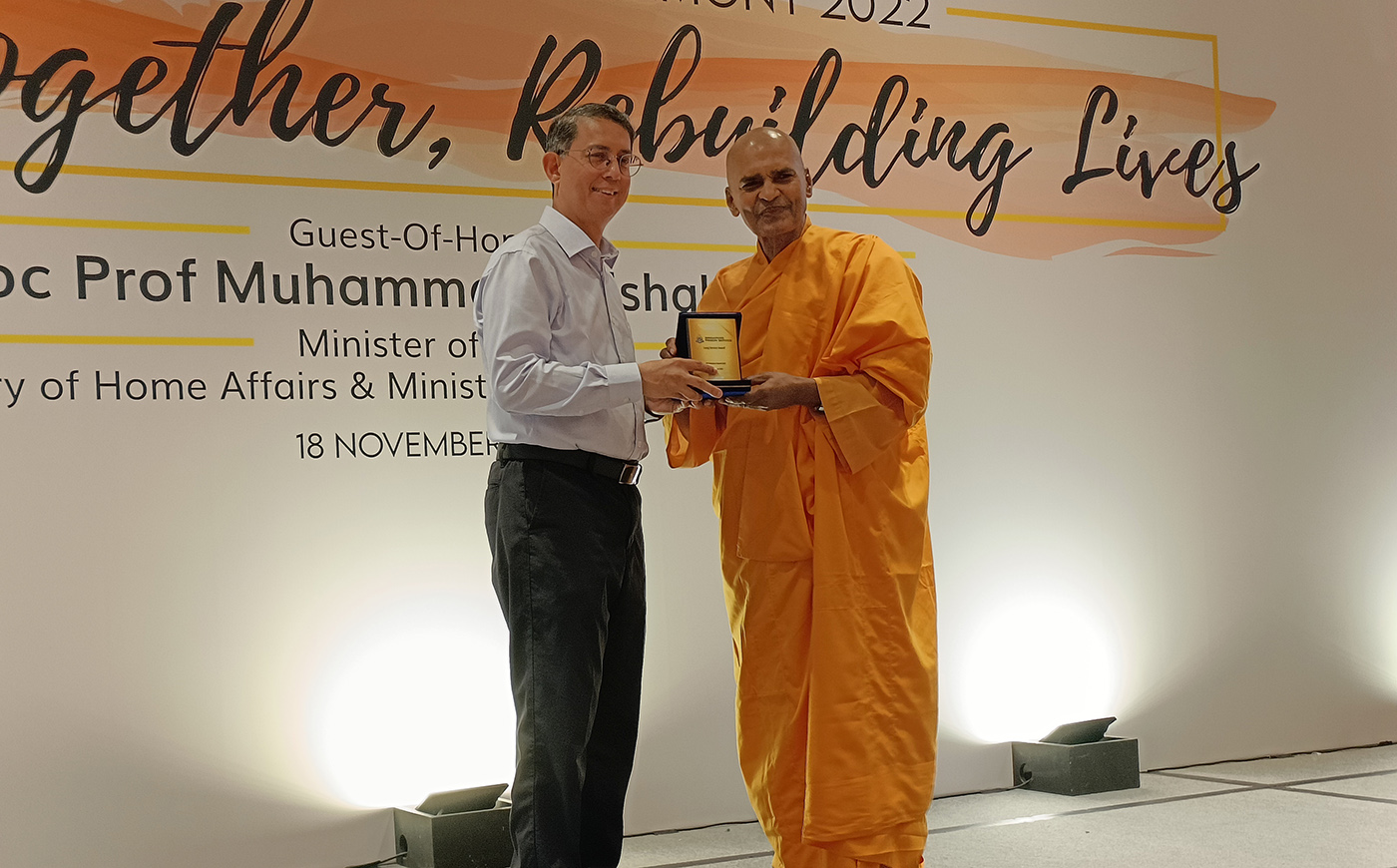Home › In The Force › TransCom: Keeping the public safe on the move
Home › In The Force › TransCom: Keeping the public safe on the move

From assisting vulnerable elderly to using high-tech methods to catch criminals, the Public Transport Security Command ensures the safety of Singapore’s public transport network.
TEXT: MELODY TAN
IMAGES: SINGAPORE POLICE FORCE
Every day, there are over five million rides taken on MRT trains or buses, as people travel between work, school, home and play.
As public transport users in Singapore, we are used to high bus frequencies, convenient sheltered linkways, clean buses and MRT cabins. We are also used to safety: Many commuters are familiar with the sight of officers from the Public Transport Security Command (TransCom) patrolling our transport nodes such as the MRT stations and bus interchanges.
What commuters may not know is that besides daily patrols to deter and detect crime, TransCom officers are trained to deal with a range of cases in their line of duty, which includes responding and managing security incidents in the public land transport system, as well as non-security related incidents such as assisting persons in distress.
CARING FOR THE COMMUNITY
Earlier this year, on 2 January, four TransCom officers responded to a call for assistance at Tampines West MRT station.
An elderly man with dementia had been found – but with no identification on him, it would be close to impossible to help him return home. This is not an uncommon occurrence: According to the Agency for Integrated Care, on average, eight elderly people with dementia go missing every month in Singapore, with many of them being discovered at bus interchanges or MRT stations.
SC/CPL Audi Prasanto, SC/SGT Muhammad Shaheed Alam, SC/CPL Mohamed Hamza Al Waqar and SC/SGT Hamdan Afiq tried to engage the elderly man but he was wary of them. The officers were patient when engaging him and even played simple games with him to gain his trust.
The elderly man eventually opened up to the officers and shared his personal particulars. The information provided by the man enabled the officers to reunite him with his family, who were happy to see their loved one safe and sound at home again. In this case, the officers showed empathy, professionalism and care while fulfilling their job to reunite the elderly man with his family.
At TransCom, 80 percent of the officers are full-time Police National Serviceman (PNSF). Majority of them are deployed to conduct deterrence patrols to protect Singapore’s land transport system against crime and terrorism. They are trained to work closely with public transport operators to manage and diffuse any security threats that might surface during emergencies.
ON THE CUTTING EDGE OF CRIME
In addition to basic policing skills such as criminal law and police powers, TransCom officers receive training in public transport security to prepare them for the unique operating terrain. Those with leadership potential, are groomed and entrusted to be Group Leaders (GLs) where they are given the opportunities to lead, conduct ambush operations to catch suspects of crime and manage incidents like any regular officers. They are also equipped with other non-lethal equipment such as the Taser.
TransCom leverages technology such as CCTVs and data analytics to enhance our policing efforts in solving crime. On the evening of 10 February this year, the police were alerted to a case of voyeurism on a train heading towards Pasir Panjang MRT station, where a man had allegedly taken upskirt photos and videos of a female commuter.
While CCTV has been around for a while, newer technologies such as data analytics can serve to greatly enhance policing efforts in solving crime. Piecing together evidence from CCTV images and data mining, TransCom officers were able to establish the identity of the man and arrested him within 12 hours of the report.
With the public transport network expanding progressively in the coming years, TransCom continue to evolve their operations and work closely with partners and community to strengthen police presence in our transport network and raise the security awareness of the community.





